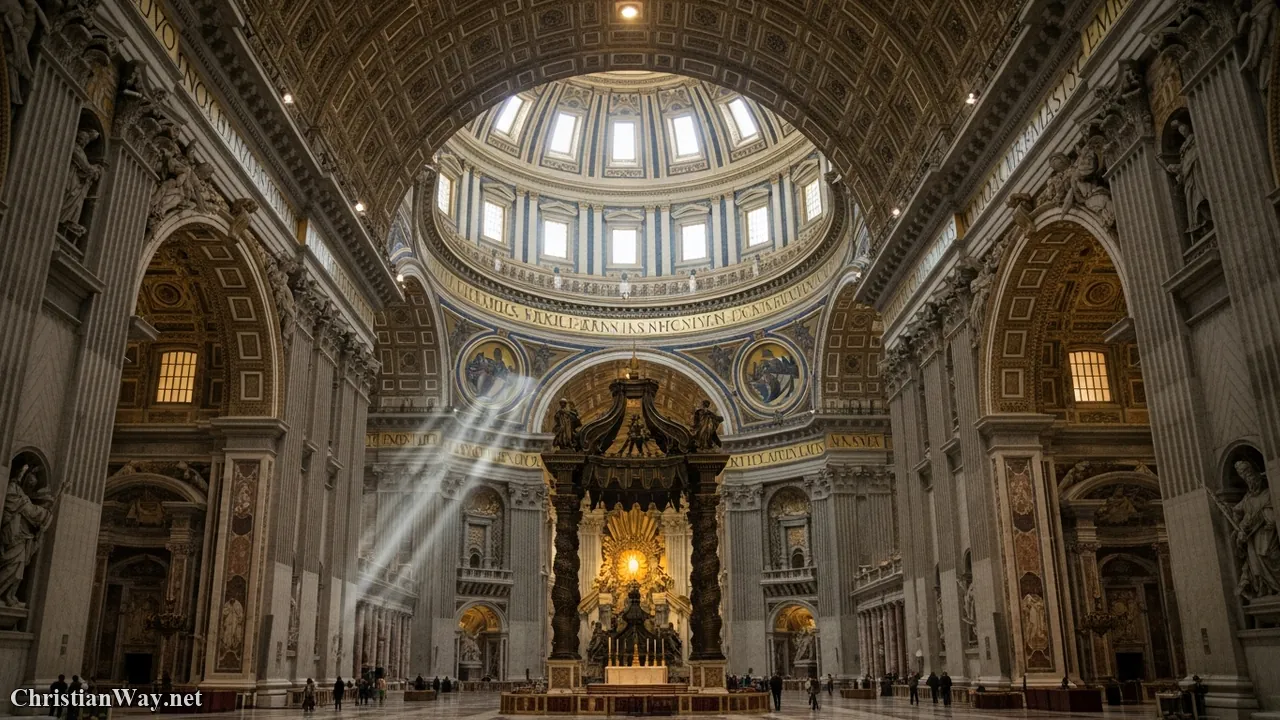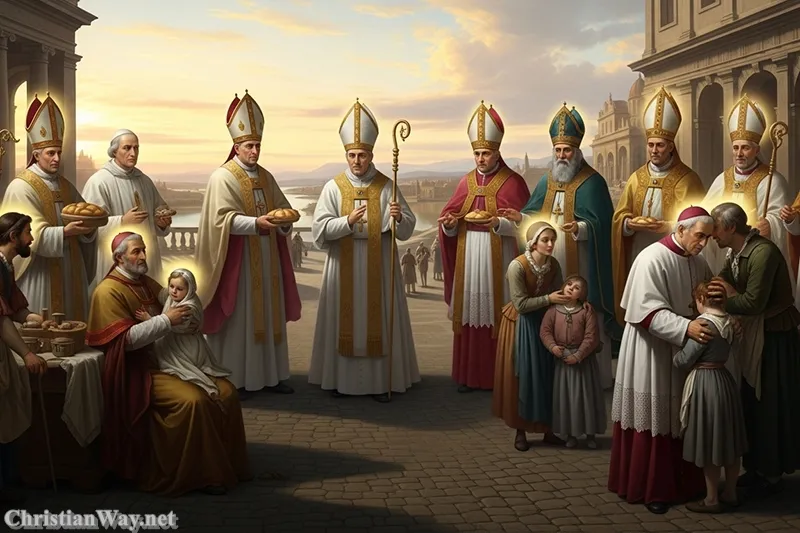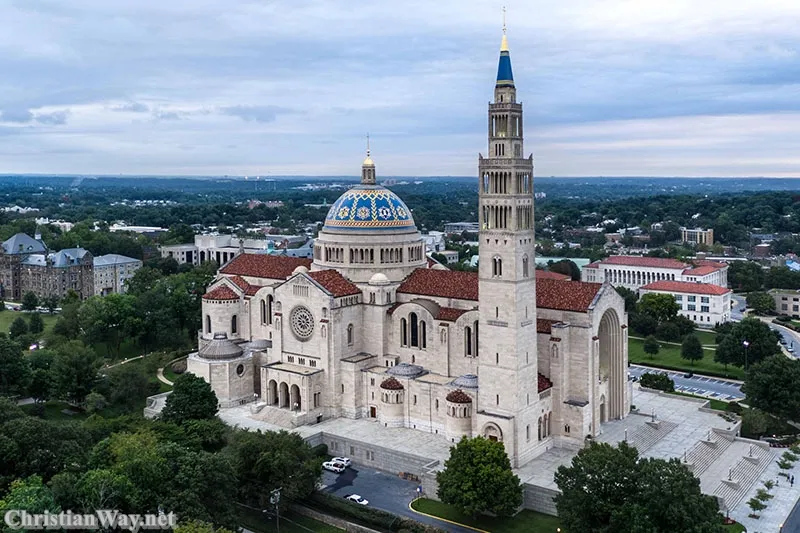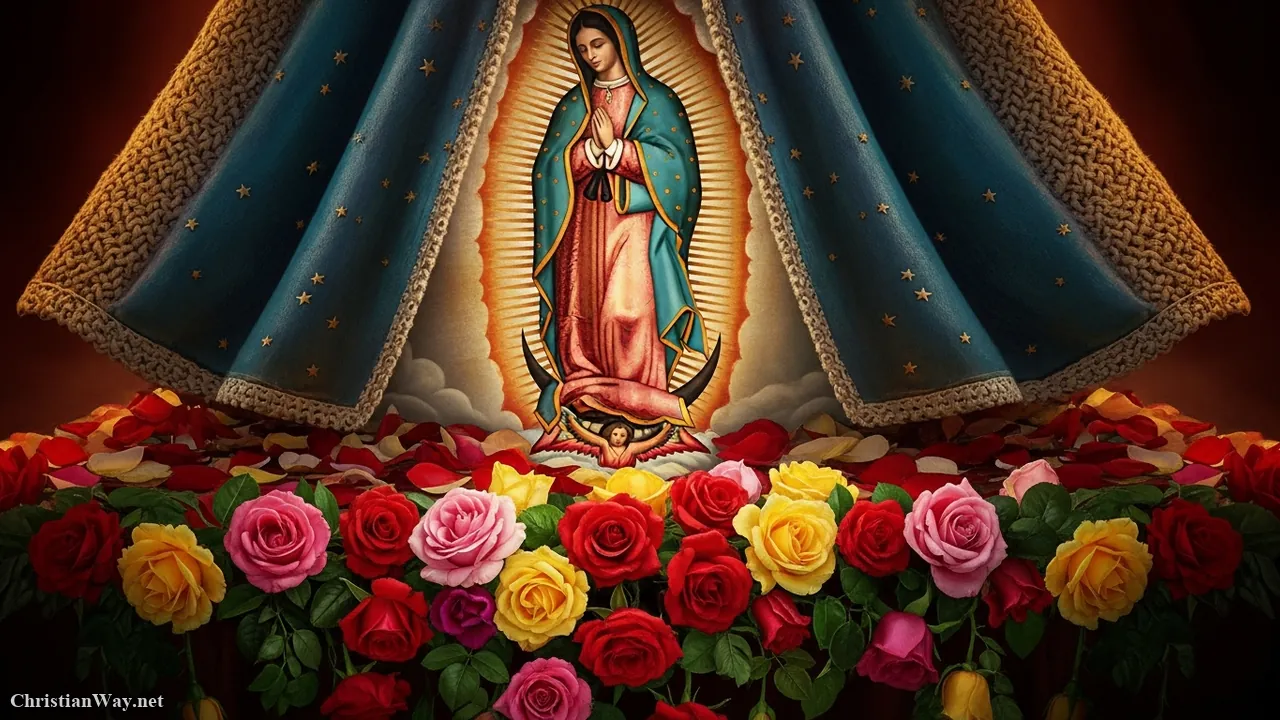Dear friends in Christ,
Every generation of believers looks to those entrusted with the care of their souls — not as rulers or administrators alone, but as shepherds who lead by love, wisdom, and the quiet authority of service. Among these spiritual leaders, the bishop holds a place of profound dignity and responsibility. His ministry is not born of ambition but of calling — a sacred vocation that reflects the very heart of Christ, the Good Shepherd who lays down His life for His sheep.
The office of bishop has existed since the earliest days of the Church. It was the apostles themselves, guided by the Holy Spirit, who appointed successors to continue their work of teaching, sanctifying, and governing the people of God. This apostolic succession forms the unbroken chain that connects every bishop today to the first witnesses of the Resurrection. Through their hands, the faith of the apostles continues to be preached and lived, ensuring that the Church remains one, holy, catholic, and apostolic.
The Bishop as Shepherd of Souls
The word bishop comes from the Greek episkopos, meaning “overseer.” But this oversight is not one of domination or control. Rather, it is the loving vigilance of a shepherd who watches over the flock entrusted to him. Christ Himself defined this ministry when He said to Peter, “Feed my sheep” (John 21:17). The bishop’s task is to nourish his people — not only with the bread of the Eucharist but also with the Word of God, with sound teaching, and with the witness of a life conformed to Christ.
A Father and Servant
A true bishop is both father and servant. He stands as a spiritual father who guides, corrects, and encourages his children in faith. Yet he also kneels as a servant, washing the feet of his people in acts of mercy, compassion, and justice. The Lord’s words, “Whoever would be great among you must be your servant” (Matthew 20:26), echo through the heart of every faithful bishop.

His authority is therefore pastoral, not political. It flows not from worldly status but from sacramental grace. In the laying on of hands at his ordination, the bishop receives the fullness of the priesthood — the power to sanctify through the sacraments, to teach with apostolic authority, and to govern with the love of Christ.
The Bishop as Teacher of Faith
The bishop is also a teacher, called to proclaim the Gospel “in season and out of season” (2 Timothy 4:2). In a world often marked by confusion, relativism, and division, he must speak the truth with courage and clarity. Yet his teaching must never be harsh or prideful; it must be shaped by compassion, for he speaks not to condemn but to lead souls toward the light of truth.
Guardian of Apostolic Tradition
Each bishop serves as a guardian of the Church’s sacred tradition — the living transmission of faith that began with the apostles. This means that while he must be open to the signs of the times, he cannot abandon the eternal truths entrusted to him. He holds a treasure that is not his own but belongs to the entire Body of Christ.
When bishops gather in council, such as in synods or ecumenical councils, they act together as successors of the apostles, discerning the will of God for His Church. The Holy Spirit, who once descended upon the apostles in the Upper Room, continues to guide their successors in faith and unity.
The Bishop as Guardian of Unity
One of the bishop’s most essential roles is to preserve unity — both within his diocese and within the wider Church. Christ prayed “that they may all be one” (John 17:21), and it is the bishop’s sacred duty to foster that unity among believers.
Unity with the Pope and with the Faithful
In the Catholic Church, every bishop shares communion with the Bishop of Rome — the Pope — who serves as the visible sign of unity for the universal Church. This bond of unity ensures that local churches do not become isolated or divided by differing interpretations of faith.
At the same time, the bishop must also be close to his people. He is called to listen to their joys, their struggles, and their hopes. In this way, he serves as a bridge between heaven and earth — between the eternal truth of the Gospel and the daily realities of his flock.
A Ministry of Reconciliation
In every age, division and misunderstanding threaten the peace of the Church. The bishop, as a man of peace, must work tirelessly to reconcile and heal. Whether it is among clergy, within families, or across different Christian traditions, his heart must always seek unity in Christ.
As Saint Cyprian of Carthage wrote in the third century:
“The bishop is in the Church and the Church is in the bishop; and if anyone is not with the bishop, he is not in the Church.”
This ancient truth reminds us that the bishop’s ministry is not merely symbolic — it is the living bond that unites the faithful into one body in Christ.
The Bishop as Witness of Holiness
The bishop is not called to be successful by worldly standards, but to be holy. His example must shine before his priests, deacons, religious, and lay faithful. Like Saint Paul, he must be able to say, “Be imitators of me, as I am of Christ” (1 Corinthians 11:1).
A Man of Prayer
At the heart of every bishop’s ministry lies prayer. Before he speaks, he listens — to the Word of God, to the voice of the Spirit, and to the silent cries of his people. Each morning, he offers the Liturgy of the Hours on behalf of his diocese. Each Eucharist he celebrates becomes a renewal of his love for Christ and His Church.
Without prayer, his leadership would be empty. But through prayer, he becomes a vessel of grace — a man who leads not by force, but by the gentle power of holiness.
A Witness in Suffering
Many bishops carry heavy burdens. They face misunderstanding, criticism, and the loneliness of leadership. Yet it is precisely in these trials that they share most deeply in the Cross of Christ. The good bishop never seeks comfort but offers himself entirely for his flock, just as Christ did.
When the world sees a humble, faithful, and prayerful bishop, it sees a reflection of the Shepherd who never abandons His sheep.
The Bishop’s Relationship with Priests and Laity
The bishop cannot shepherd alone. His ministry is shared with his priests and deacons, who extend his pastoral care into every parish and community.
A Father to His Priests
Priests look to their bishop as a father in faith. He ordains them, encourages them, and supports them in their mission. When he visits their parishes, he comes not as a guest but as one who knows their struggles and rejoices in their faith.
A bishop who loves his priests strengthens the entire Church. And a priest who prays for his bishop fulfills his own vocation more fully.
A Pastor to the Laity
To the lay faithful, the bishop is a sign of Christ’s presence in their midst. He visits schools, hospitals, and prisons; he celebrates the sacraments; he listens to the poor and the marginalized. His pastoral presence reminds the people that they belong to a Church that is alive, compassionate, and united.
In this sense, every bishop’s life becomes a living sermon — a testimony that the Church’s leadership is not about privilege, but about service.
The Bishop in the Wider Christian Family
While each Christian tradition understands the office of bishop differently, the role itself remains a vital expression of apostolic continuity and unity.
In the Orthodox Church, the bishop is seen as the living icon of Christ among the faithful. In the Anglican Communion, bishops uphold the faith and sacramental life of their dioceses. In some Protestant communities, the title may be symbolic, yet the call to spiritual oversight remains rooted in Scripture.
Thus, the episcopal office serves as a point of connection among all Christians — a reminder that leadership in the Church must always mirror the self-giving love of Christ.
A Spiritual Portrait of the Bishop
If we were to paint a portrait of a holy bishop, it would not show a man seated on a throne of power, but one who kneels in prayer before the altar. His eyes would be turned toward heaven, yet his hands would reach out to his people. His voice would speak truth, but his heart would beat with compassion.
Such a bishop lives not for himself but for others. His joy is found not in honors, but in seeing his people grow in holiness. His life echoes the words of Saint Augustine:
“For you I am a bishop, but with you I am a Christian.”
Reflect and Pray
As we reflect on the sacred ministry of bishops, let us pray for those who serve in this apostolic office. Their burdens are many, but their mission is noble. Let us also pray that we, the faithful, may support them with love, obedience, and constant prayer — that together we may build up the Body of Christ in truth and charity.
Prayer:
Lord Jesus Christ, Shepherd and Guardian of our souls,
look with mercy upon Your bishops, the successors of Your apostles.
Grant them wisdom in teaching, compassion in service,
and courage in defending the truth of Your Gospel.
May their lives reflect Your love,
and may all who are under their care be led to holiness and peace.
Amen.
— Fr. John Matthew, for Christian Way





